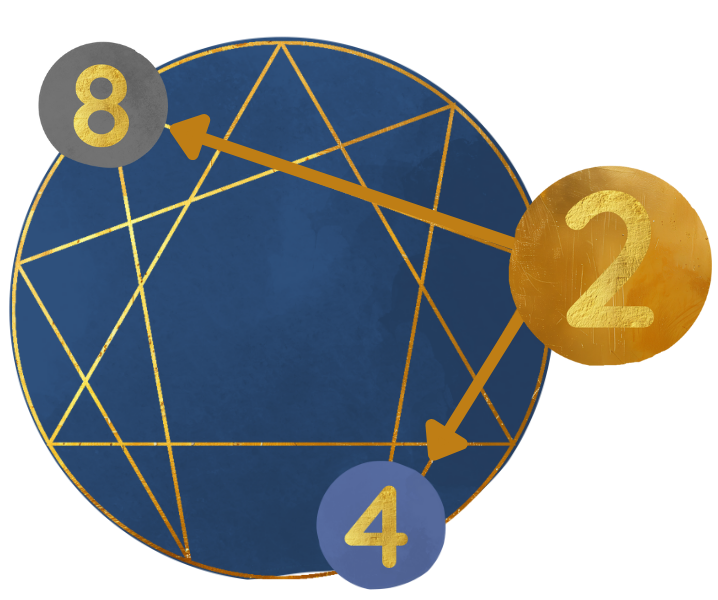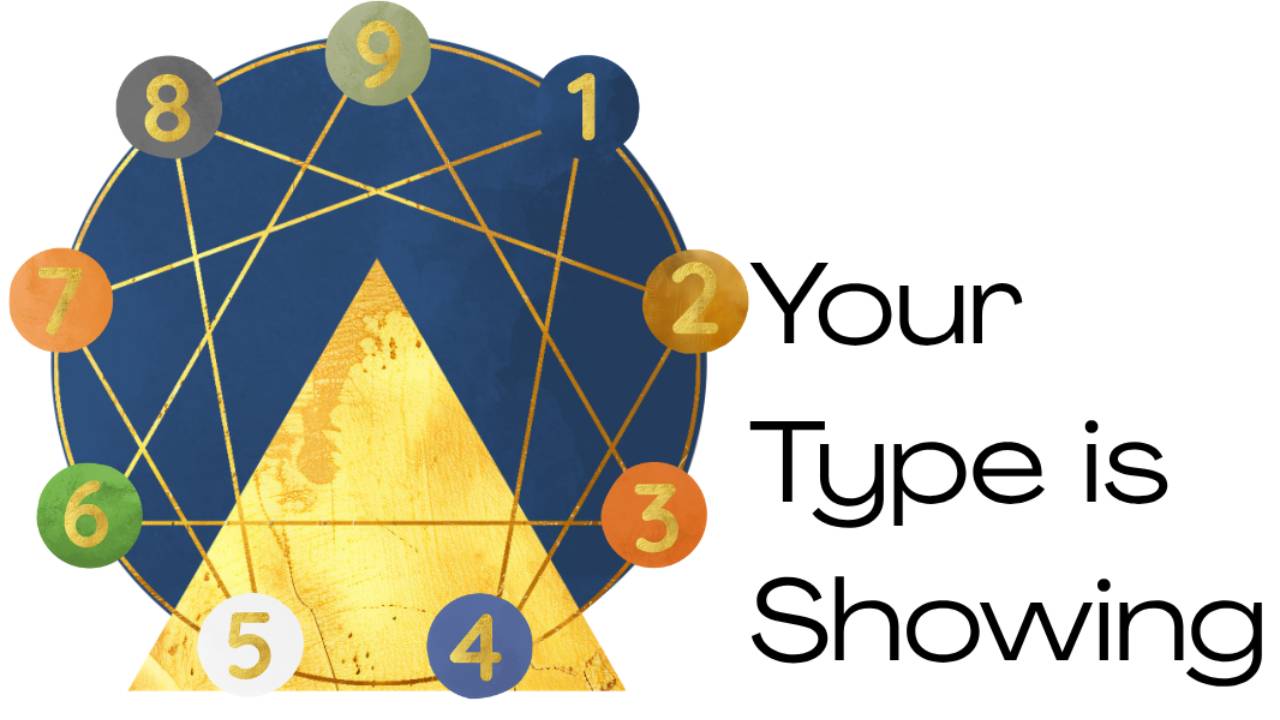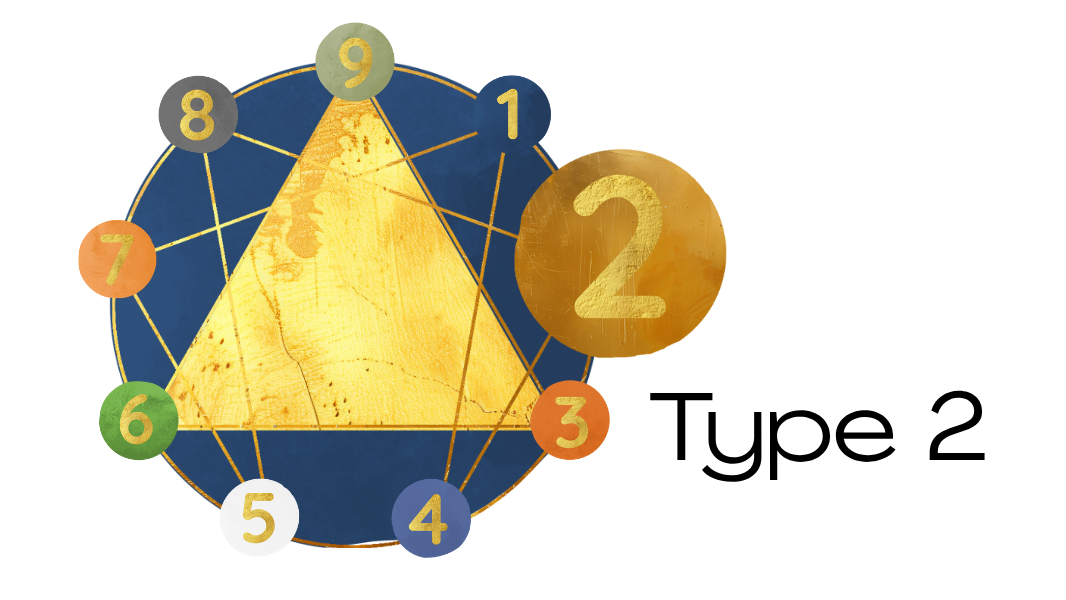
Motivated to be liked and needed, Twos build connection through generosity, warmth, and heartfelt support.
Enneagram Twos are driven by a core need to feel loved and appreciated. They give freely to others and build strong emotional connections in hopes of being valued in return.
Self talk:
“People depend on me for help. I must earn the love and appreciation of others by being there for them. I am only worthwhile if I am liked and needed. I deserve love because I am loving.”
Core Fear & Desire
- Basic Fear: Of being unwanted, unworthy of being loved
- Basic Desire: To feel loved
Vice and Virtue
Vice – Pride:
Twos tie their self-worth to being helpful and indispensable, believing they must earn love through sacrifice. Pride masks their true needs and fuels over-giving.
Virtue – Humility:
Humility allows Twos to accept love without needing to be needed. It fosters genuine connection through mutual respect and lets giving arise from fullness, not strategy.
Developmental Path: From Need to Freedom
| Stage | Developmental View | Two’s Expression |
|---|---|---|
| Egocentric | “I must give to be loved.” | Over-identifies with others’ needs, suppresses self, seeks approval |
| Ethnocentric | “Helping is my identity.” | Warm, generous, but attached to role of supporter; internal martyr narrative |
| Worldcentric | “Everyone has needs—including me.” | Names and expresses personal needs while staying relational |
| Cosmocentric | “Love flows freely without transaction.” | Gives and receives equally; honours self and others as whole beings |
Strengths of the Two
- Warm, relational, and emotionally attuned
- Generous with time, attention, and affection
- Creates belonging through service and connection
- Skilled at reading people and responding to their needs
- Motivates and uplifts others
Challenges for the Two
- Suppresses personal needs and boundaries
- Manipulative or flattering when needs go unmet
- Emotionally over-involved in others’ lives
- Difficulty receiving or asking for help
- Anger and resentment masked by niceness

Direction of Growth and Stress
Under Stress → Average Type Eight:
Twos may become controlling, reactive, or explosive. Unacknowledged resentment drives them to demand attention or lash out when support feels unreciprocated.
In Security → Average Type Four:
When safe, Twos risk expressing their vulnerability, moodiness, and emotional depth. They become more self-reflective and aware of their unmet needs, moving toward authenticity.
The Type 2 at Work
Chief Asset: Connection. Twos sense emotional needs and provide support with warmth and sensitivity.
How They Approach Problems:
“I’m fine; is there anything I can do to help you?”
Workplace Belief:
“Things work best when I can help people succeed.”
What They Appreciate in Others
- Friendliness
- Emotional openness
- Gratitude and reciprocation
What Frustrates Them in Others
- Emotional coldness
- Dismissiveness or aloofness
- People who deny needing support
How They May Frustrate Others
- Flattery or emotional manipulation
- Unwanted advice or interference
- Need for constant affirmation or attention
How They’re Often Seen by Others
- Positive: Helpful, relational, empathetic, dependable
- Negative: Intrusive, prideful, overly emotional, manipulative
The Considerate Helper as a Leader
Strengths:
- Motivates through emotional connection
- Supports team development and cohesion
- Builds loyalty and morale
- Resourceful and encouraging
Challenges:
- May favour some over others
- Can avoid conflict or hard decisions
- Might struggle with boundaries or saying no
Where They Shine: In relational environments that value empathy, encouragement, and mentoring
Leadership Development Tip:
Balance care for others with care for self. Let task execution and emotional connection share equal weight in your leadership focus.
Derailers to Watch For
- Breaking Boundaries: Intruding on others’ space under the guise of helping
- Histrionics: Excessive emotional displays or drama to gain attention
- Playing Favourites: Ranking others by value, creating exclusivity
- Over-identifying with Others’ Problems: Losing self in caretaking
- Needing to Be Liked: Over-conforming, pleasing, or manipulating
- Always Taking the Support Role: Avoiding front-line leadership and visibility
Growth Invitations for Type 2
- Recognise that you’re lovable without being needed
- Practice receiving as a gift to others
- Learn to name your needs and ask clearly
- Build the muscle of saying no with kindness
- Reflect honestly on motives behind your giving
- Experiment with giving without attachment to the outcome
Keep Growing
Free Subscription
Keep showing up for others—without losing yourself.
With Your Type Is Showing, a type-based email series delivering weekly insights to help you turn people-pleasing into grounded self-worth and authentic presence.











